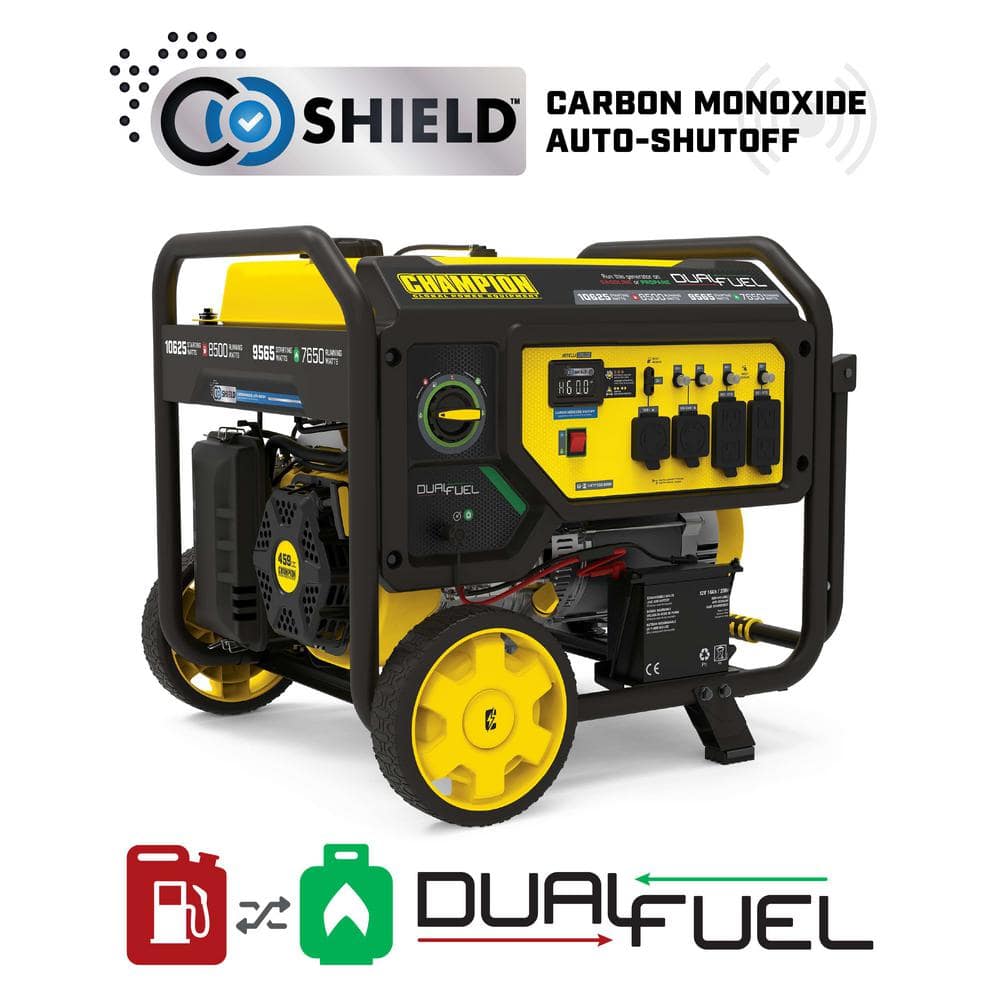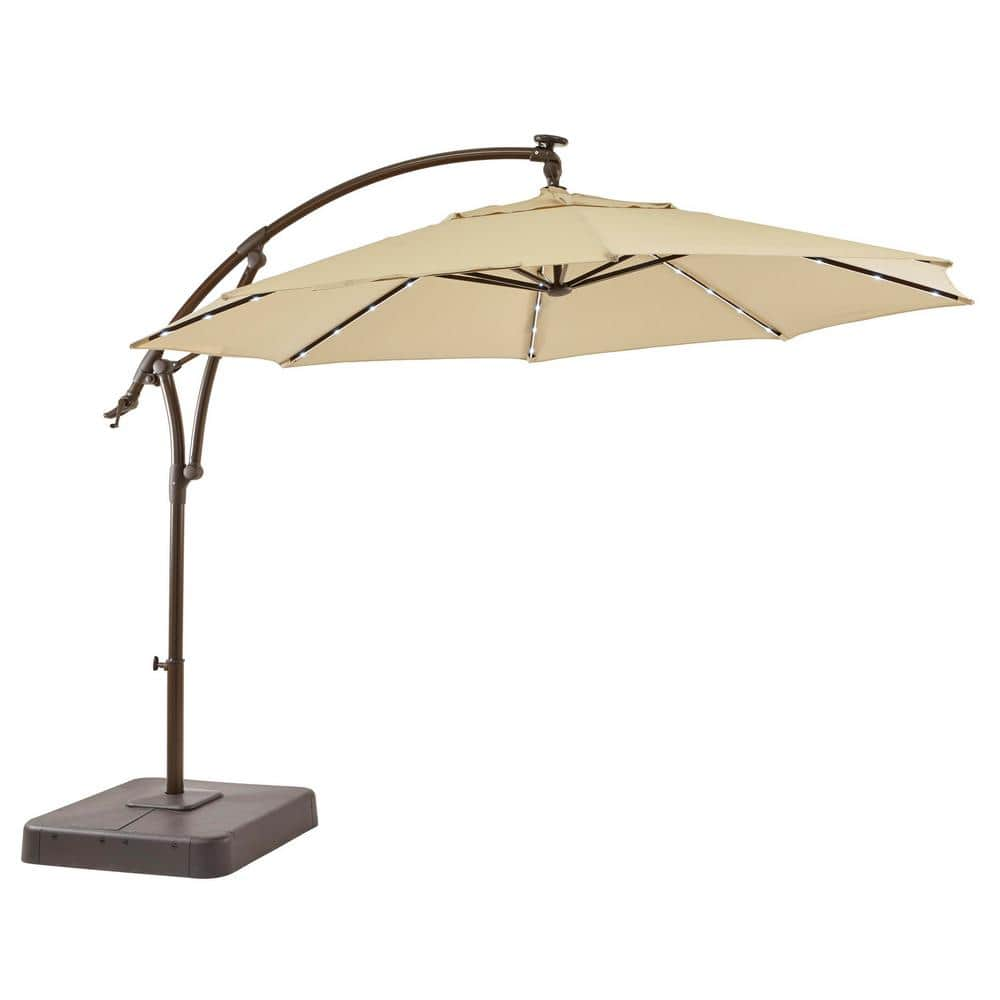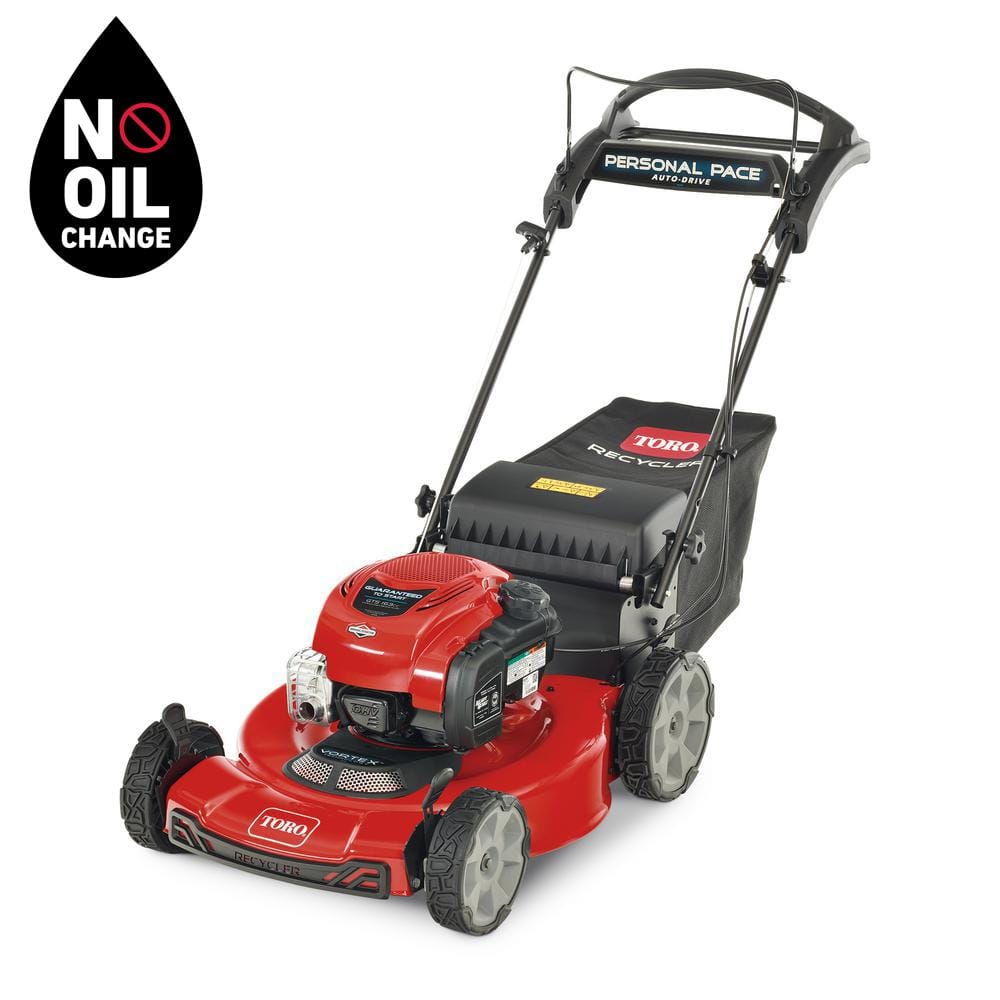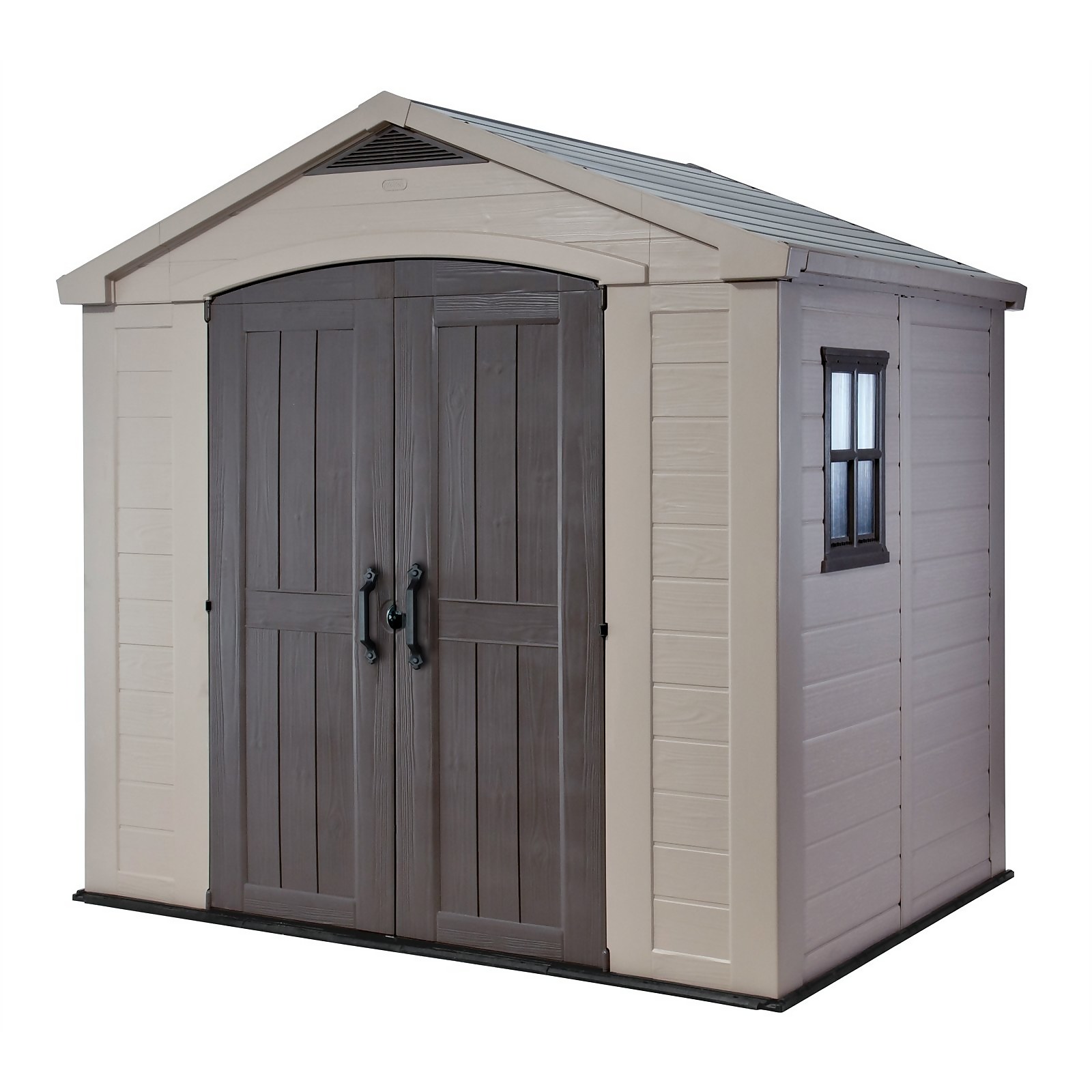Champion Power Equipment 10,625/8500-Watt Electric Start Gas and Propane Dual Fuel Portable Generator with CO Shield
10 hour run time, carbon monoxide auto shutoff, electric start. Propane (LPG) hose, wheel kit and engine oil included. 10,625 starting watts and 8,500 running watts.
The Champion Power Equipment 201083 8500-Watt Dual Fuel Portable Generator with CO Shield is the perfect combination of versatility and convenience. Operate your Dual-Fuel generator right out of the box on gasoline or propane, and easily switch fuels with our patent pending fuel select dial that allows for safe switching between fuel sources. Using gasoline, the 459cc Champion engine produces 10625 starting watts and 8500 running watts and will run for 10 hours at 50% load when the 7.7-gallon fuel tank is full. It produces 9565 starting watts and 7650 running watts and will run for 5 hours at 50% load when using a 20-pound propane tank. Includes a 6.5-foot propane hose with a built-in regulator. Covered outlets include 120V 30A locking outlet (L5-30R), a 120/240V 30A locking outlet (L14-30R) as well as four 120V 20A GFCI protected household outlets (5-20R). CO Shield technology monitors the accumulation of carbon monoxide (CO), a poisonous gas produced by engine exhaust when the generator is running. If CO Shield detects unsafe elevated levels of CO gas, it automatically shuts off the engine. CO Shield is not a substitute for an indoor carbon monoxide alarm or for safe operation. DO NOT allow engine exhaust fumes to enter a confined area through windows, doors, vents or other openings. Generators must ALWAYS be used outdoors, far away from occupied buildings with engine exhaust pointed away from people and buildings. Meets the requirements of ANSI/PGMA G300-2018.
- Need help with service or repair, Champion Power Equipment is available to help 24-hours a day, 7-days a week
- Dual fuel: operate your 8500-Watt portable generator right out of the box on either gasoline or propane, plus the unit holds 1.2 qt. of oil (included) and has a low oil shut-off switch
- Electric start: power up the 459 cc champion engine with the handy rocker switch, battery included
- Intelligauge: keep track of voltage, frequency and run-time hours to easily monitor output and track maintenance intervals while the UL-recognized sensor uses an LED to indicate CO shutoff or fault
- Powerful: at 10625 starting watts and 8500 running watts on gasoline and 9565 starting watts and 7650 running watts on propane, trust volt guard to protect your appliances from electrical voltage spikes
- Champion support: includes 3-year limited warranty with free lifetime technical support from dedicated experts
- Items included: propane (LPG) hose, engine oil, oil funnel, wheel kit
- Assembly required
Additional information
| Product Height x Length x Width (in.) | 26.1 x 28.9 x 27.7 |
|---|---|
| Certifications and Listings | CARB Compliant,CARB Compliant,EPA Approved,EPA Approved |
| Manufacturer Warranty | 3 Year Limited Warranty |






by Seaboro
We use to power our RV every day. It starts every time and has had no issues. Will update after using a bit.
by James
I live 20 miles from the closest gym, so I built my own private gym. I use my 8000-watt generator to power my gym, using a window unit to cool the gym, which works very well. During 90 degrees to 100 degrees days, this generator powers the gym, which helps to keep the electric bill down, only time I am using the generator is when I am working out. I also got the generator for power outages, not often here in Southern Texas, but when outages occur, very helpful.
by Greg
Farm use, such as heavy drilling and cutting of wood, grinding and chop-sawing of steel, and other in-the-field repairs, including MIG welding with a 140 output amp, 110 v welder. I must, however, retrofit a proper set of transport wheels with pneumatic tires, and fabricate a hitch for towing behind a quad or side-by-side. The hard plastic wheels of such a small diameter are incapable of traveling on rough or gravelled terrain. The sheer weight of this generator makes movement over any surface other than smooth, clean concrete virtually impossible. Labelling of the functions (Start,Stop, Choke, gasoline, Propane, etc, would make it much easier to operate, as a generator is not a machine that I use daily, and to decipher the meanings of the small, coloured stickers, which will inevitably fall off or fade to invisibility. I’d like Champion to work on that!
by Rando
This generator fired right up and works as it should. I would definitely recommend this generator to any one looking for one big enough to run your house during a power outage.
by Ashley
Great product brought home and had up and running within half an hour. Easy to use and got us up and going.
by Taylor
Started right up, put compressor and shop vac no bogging.
by Steve
Being a South Florida native, I HAVE WEATHERED MANY STORMS and GENERATORS. This generator blows away the competition on price, value and 24/7 support. I highly recommend this product and the company.
by Lynne
This generator worked great for the manual transfer switch that I put in after experiencing a 24 hour loss of power. Tested it with a 10 circuit manual transfer switch and it was able to handle the load for our well, water heater, computer room, sump pumps, standing freezers, bath, furnace, and refrigerator.
by Josh
My wife and I have been shopping around for a generator since we had our first kid and we live in an active hurricane zone. My co-worker told me about the amazing customer service he received and raved about this brand so that was the selling point. It was professionally delivered, in perfect shape, easy to put together (add wheels, legs, and connect the battery). The easy start is also great as its just push a button and you are a go. Not looking forward to hurricane season, but at least we are prepared.